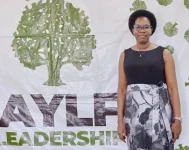Dr. Patricia Achan Okiria shared her job search struggles at a recent Gulu University event. Since graduating from Makerere University in 2000, she has applied for many positions but never made it to any interview shortlist. The deputy Inspector General of Government wanted to serve as a judge, yet her latest application for Justice of Appeal failed.
Every government job she landed came through personal connections rather than formal applications. Her career began when a professor noticed her research talents and connected her with his wife's legal firm. After saving money for three months, she paid her way through the Law Development Centre, where she earned her legal practice diploma.
She joined the Uganda Human Rights Commission as a legal consultant on a six-month contract. When that ended, she volunteered at the Commission until they hired her permanently as a human rights officer. Her performance impressed everyone at the office, leading to a posting at the Gulu branch.
The Directorate of Ethics and Integrity recruited her next. She drafted several reforms before transferring to the Ministry of Works and Transport. As a policy advisor there, she helped resurrect Uganda Airlines by leading a special committee. Despite being offered the executive director position at the airline, she declined.
President Museveni personally contacted her about fighting corruption. He called, saying he wanted her help battling graft, and then appointed her as deputy IGG. She learned about her appointment through others before confirming it with Justice Minister Gen Kahinda Otafiire, who laughed because she hadn't yet collected her appointment letter.
According to Achan, corruption investigations face major challenges. She noted that whistleblowers often report corruption only after falling out with former accomplices. Uganda loses approximately Shs 9 trillion yearly to corruption activities, though authorities recovered Shs 17 billion during recent quarters.
She emphasized teaching integrity values early helps create accountable future leaders. Corruption happens when people abandon moral principles. Children must learn anti-corruption practices young, or they might develop harmful attitudes toward government institutions as they grow older.
Gulu University vice-chancellor Professor George Openjuru Laddah supported her views on early value education. He believes students with strong ethics foundations adapt better to university life. These students demonstrate leadership skills and accountability that positively impact campus culture throughout their educational journey.
Every government job she landed came through personal connections rather than formal applications. Her career began when a professor noticed her research talents and connected her with his wife's legal firm. After saving money for three months, she paid her way through the Law Development Centre, where she earned her legal practice diploma.
She joined the Uganda Human Rights Commission as a legal consultant on a six-month contract. When that ended, she volunteered at the Commission until they hired her permanently as a human rights officer. Her performance impressed everyone at the office, leading to a posting at the Gulu branch.
The Directorate of Ethics and Integrity recruited her next. She drafted several reforms before transferring to the Ministry of Works and Transport. As a policy advisor there, she helped resurrect Uganda Airlines by leading a special committee. Despite being offered the executive director position at the airline, she declined.
President Museveni personally contacted her about fighting corruption. He called, saying he wanted her help battling graft, and then appointed her as deputy IGG. She learned about her appointment through others before confirming it with Justice Minister Gen Kahinda Otafiire, who laughed because she hadn't yet collected her appointment letter.
According to Achan, corruption investigations face major challenges. She noted that whistleblowers often report corruption only after falling out with former accomplices. Uganda loses approximately Shs 9 trillion yearly to corruption activities, though authorities recovered Shs 17 billion during recent quarters.
She emphasized teaching integrity values early helps create accountable future leaders. Corruption happens when people abandon moral principles. Children must learn anti-corruption practices young, or they might develop harmful attitudes toward government institutions as they grow older.
Gulu University vice-chancellor Professor George Openjuru Laddah supported her views on early value education. He believes students with strong ethics foundations adapt better to university life. These students demonstrate leadership skills and accountability that positively impact campus culture throughout their educational journey.












